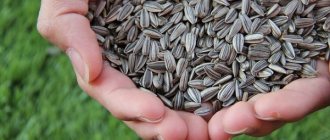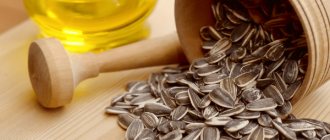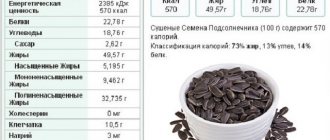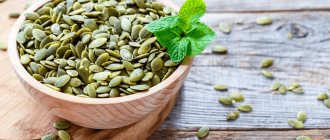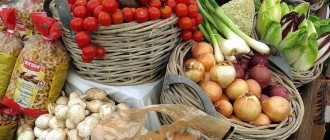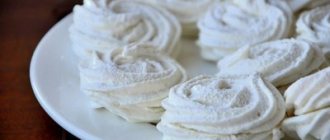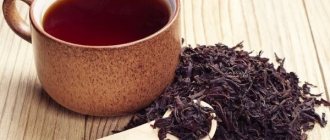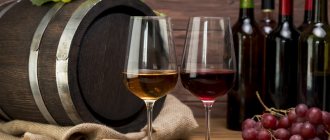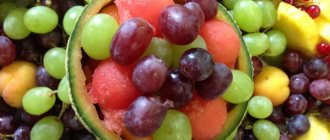Most people have a negative attitude towards shelling sunflower seeds. This activity is considered a waste of time, but in vain. Sunflower seeds contain a lot of nutrients that are beneficial for the human body. Valuable fats, essential plant components, minerals - all this is contained in the seeds. Sunflower seeds contain a very high concentration of vitamin E and selenium.
Up to two thousand seeds ripen in one sunflower basket [1].
Composition and calorie content
Calories 578 Kcal
- Fat:
51.46 g - Proteins:
20.78 g - Carbohydrates:
20.0 g - Water:
4.73 g - Ash:
3.02 g - Fiber:
11.1 g
| Vitamins | Quantity | % RDN |
| Vitamin B7 (biotin) | 670 mcg | 1340% |
| Vitamin E (alpha tocopherol) | 33.20-35.17 mg | 228% |
| Vitamin B1 (thiamine) | 1.48-2.10 mg | 105% |
| Vitamin B9 (folic acid) | 227 mcg | 57% |
| Vitamin B6 (pyridoxine) | 0.80-1.35 mg | 53% |
| Vitamin B3 (PP, niacin) | 6.80-8.33 mg | 38% |
| Vitamin B5 (pantothenic acid) | 1.13-2.20 mg | 33% |
| Vitamin B2 (riboflavin) | 0.24-0.36 mg | 15% |
| Vitamin B4 (choline) | 55.1 mg | 11% |
| Minerals (per 100 g): | Quantity | %RDN |
| * Cadmium | 9.1-21 mcg | 420% |
| Nickel | 144-597 mcg | 247% |
| Vanadium | 84.1 mcg | 210% |
| Copper | 1752-1800 mcg | 178% |
| Bor | 113.5 mcg | 162% |
| Manganese | 1950 mcg | 97% |
| Phosphorus | 660-705 mg | 85% |
| Magnesium | 317-354 mg | 84% |
| Selenium | 53-56 mcg | 83% |
| Cobalt | 5.3 mcg | 53% |
| Zinc | 5000 mcg | 42% |
| Iron | 5.3-6.1 mg | 38% |
| Molybdenum | 19.5 mcg | 28% |
| Silicon | 8.0 mg | 27% |
| Rubidium | 26 mcg | 26% |
| Potassium | 645 mg | 26% |
| Zirconium | 11.2 mcg | 22% |
| Calcium | 78-367 mg | 20% |
| Sulfur | 180.8 mg | 18% |
Full chemical composition ➤
Other important connections:
- Phytosterols
- 534 mg (971% of the RDA). The main part is beta-sitosterol (151.3%).
- Purines
— 65 mg (52.3% of RDA)
- Oxalic acid
— 18.9 mg (4.7% of RDA)
Fried or raw - which is healthier?
“It is not recommended to process the seeds by roasting, as they contain vegetable oil, unsaturated fatty acids, trace elements, vitamin E. Fatty acids found in sunflower seeds quickly enter into an oxidative reaction. Exposure to high temperatures leads to the formation of carcinogenic compounds that negatively affect healthy cells of the human body.” - says nutritionist Elena Solomatina.
In roasted seeds, in comparison with raw ones, the loss of most useful components is recorded. They only become a source of empty calories.
It is important to properly store raw sunflower seeds. If certain conditions are not met, larvae may appear in them.
Sprouted sunflower seeds occupy a special place in dietetics. When germinated, the concentration of nutrients in them increases significantly. Mechanisms occurring inside the seed help reduce factors that negatively affect the absorption of minerals. For example, phytic acid is destroyed [2].
Contraindications for use
You should also remember about contraindications.
It is not recommended to consume sunflower seeds in the following cases:
- in case of an allergic reaction to the product;
- with intolerance to seeds;
- for representatives of professions associated with stress on the vocal cords, singers, announcers, actors, teachers;
- with cholelithiasis;
- for gastritis, stomach ulcers;
- people who are overweight.
Read: How not to gain weight from evening snacks, what you can eat at night
We recommend watching a video about the positive and negative properties of seeds:
Sunflower seeds are a product that is not only healthy, but also tasty. It is recommended to remember the contraindications and not to overuse the quantity.
The benefits of sunflower seeds
The high content of vitamin E, magnesium, linoleic fatty acids and protein explains the benefits of sunflower seeds and a number of its beneficial properties:
- Reduce blood pressure.
- Reduce cholesterol levels.
- Lower blood sugar levels.
Relieves inflammation.
Short-term inflammation is the body’s physiological response to the influence of a pathological agent. This is a normal immune reaction. However, symptoms of chronic inflammation indicate the development of chronic diseases.
One study on sunflower seeds involved 6,000 people. Those participants who ate sunflower seeds at least five times a week had a 32% decrease in C-reactive protein levels compared to those who did not eat them. High levels of C-reactive protein are a marker of inflammatory processes associated with a high risk of cardiovascular disorders and the development of type II diabetes [3].
Lower blood pressure
. Sunflower seeds contain specific enzymes that narrow the lumen of blood vessels. Their action causes a decrease in the tone of the vascular wall and, as a result, a decrease in blood pressure. An additional factor that contributes to this process is the presence of magnesium.
Linoleic acid, which is concentrated in large quantities in sunflower kernels, helps lower blood pressure. With its help, the body synthesizes substances similar in composition to hormones. They relax the lining of large blood vessels, which lowers blood pressure. In addition, linoleic acid helps reduce blood cholesterol levels [4].
In another experiment that lasted three weeks, patients with type II diabetes received 30 g of sunflower seeds. They were part of a balanced therapeutic diet. As a result, their blood pressure decreased by 5% [5]. In addition, women showed a decrease in the level of “bad” cholesterol by 9%, and triglycerides by 12%.
Protects against diabetes.
The positive effect of sunflower seeds on blood glucose levels and the course of type II diabetes mellitus has been proven by several studies. The experiment showed that daily consumption of 30 grams of seeds as part of a complete diet reduces sugar levels. When taken on an empty stomach for 6 months, glucose levels decrease by 10%, in contrast to the group following only a healthy diet [3]. The hypoglycemic effect is explained by the presence of chlorogenic acid in sunflower seeds.
Vitamin E.
Sunflower kernels are rich in vitamin E. This component is known for its antioxidant properties. Several medical observations have proven the ability of vitamin E to support eye health. Its presence in the diet ensures the prevention of eye diseases, including macular degeneration.
Obvious benefits for the body
Seeds are a valuable food product, rich in vegetable fat and, accordingly, fat-soluble vitamins, which every third resident of our country lacks. Therefore, the benefits of seeds are obvious: they are a source of vitamins that help in the fight against aging; seeds reduce plasma cholesterol levels.
Sunflower seeds can dull appetite and are used in some weight loss diets
They are actively used as snacks. They provide essential fats and allow you to limit fats in your diet without compromising your health.
Seed kernels contain up to a quarter of the volume of dietary protein, which is quite suitable for the body's needs. There are even more fats and carbohydrates, and the presence of vitamins and minerals makes them a complete “dish”. There is a well-known fact from the story of a reclusive nun who lived on the island for many years and ate almost nothing but sunflower seeds.
Inside unroasted sunflower seeds, the microelements necessary for the body are perfectly preserved - iodine and iron, as well as magnesium, which is necessary for the stable functioning of the heart and cleansing the blood vessels of toxins. If you eat a handful of unroasted seeds once a week in winter, you will perfectly nourish your body with vitamins and minerals. Due to the content of vitamin B6 and folic acid
, seeds are very useful for nervous diseases and mood disorders.
By the way, they are an excellent sedative and antidepressant. Therefore, if you have a nervous job, carry a bag of seeds with you. In addition, the process of eating seeds can replace smoking
cigarettes – many people managed to get rid of their harmful addiction by switching to seeds.
Unroasted seeds are great for treating brittle nails and hair due to their unsaturated fatty acids. Extracts and particles of sunflower seeds are used in cosmetology - they are used in nourishing masks, scrubs and creams for the body and hair.
Negative effects of seeds
Harm and benefits of seeds
However, despite all the obvious benefits of seeds, they also have many negative aspects that are worth remembering and discussing in detail.
First of all, due to their rich composition, the seeds are quite high in calories: 100 grams of peeled seeds contain the same amount of calories as a whole bar of chocolate or a full meal - borscht and cutlet. Therefore, the intake of this product for those losing weight (unless provided for by a special diet) should be sharply limited or completely eliminated.
In addition, many people consume fried sunflower seeds, and when frying, most of the beneficial substances are lost, and healthy fats are transformed into harmful ones or destroyed.
Another problem can be that sunflower fields are often located near busy highways, which means that the plants can absorb toxic substances
emissions, soils and fertilizers used to cultivate fields. When buying seeds, ask for a quality certificate, as for any food product, which the grandmothers who sell the seeds simply do not have.
In addition, many producers do not wash their seeds before roasting, nor do many consumers wash them before consuming them. And the peel of a sunflower can contain quite a lot of harmful substances and pathogens. There are cases of contracting unpleasant infections through seeds.
Dentists are also categorically against the consumption of sunflower seeds - with frequent consumption of sunflower seeds, tooth enamel deteriorates, which leads to damage to the front teeth. They crumble, are more susceptible to caries and darken. The teeth of sunflower seeds lovers are heavily damaged by tartar.
Seeds are contraindicated for singers and those who talk a lot and often. Due to the oils contained in sunflower seeds, the mucous membrane of the throat and vocal cords is lubricated with a thin layer of fatty film, after which it is very difficult to sing, as well as to talk a lot. The seeds make your mouth dry and thirsty.
Seeds are not recommended for patients with liver problems.
, stones in the gall bladder - they can cause an attack due to a sharp activation of the outflow of bile.
And another unpleasant thing about consuming seeds is that many do it on the street, throwing the husks at their feet, sitting on benches in parks and squares, or driving by in a car and throwing the husks out the window. As a result, mountains of husks form around the bench, mountains of garbage form along the roads, which, you see, is extremely unpleasant for those around you.
Do you like seeds?
Alena PARETSKAYA
Sunflower seeds are good for the body. For dietary purposes and for treatment, it is better to eat them raw, not to fry. Regular, prolonged scratching is harmful - primarily because it destroys tooth enamel.
Harm of sunflower seeds
Excessive salt
. Sunflower seed shells are often treated with salt. The analysis revealed the presence of 8250 mg of sodium on the surface of the husk, which is in contact with the mucous membranes of the mouth. This huge amount of sodium equates to 356% of the recommended daily intake.
The salt content on the label is usually misleading. Typically, the amount of sodium contained in the inner core is stated, not the shell.
Possibility of constipation.
A single consumption of a large amount of sunflower seeds can lead to significant stool retention. Constipation is equally common in adults and children [6].
Presence of cadmium. Exposure to large doses of cadmium over a long period can negatively affect kidney health. Sunflower is more capable of absorbing cadmium from the soil than other crops. During a medical experiment, a group of participants were offered 255 grams of sunflower seeds per week for a year. Thus, the amount of cadmium in the body increased from 65 micrograms to 175 micrograms per week (WHO recommends a weekly cadmium limit of 490 micrograms). These changes did not affect the condition of the renal structures [7].
If your diet includes sunflower seeds in reasonable quantities, about 30 grams per day, then there is no need to worry about the level of cadmium in the body. It is important not to get carried away by consuming seeds without control.
Benefit
According to nutritionists, the calorie content of the product is quite high. Per hundred grams there are from 550 to 610 kcal (based on the processing applied and the variety). Do sunflower seeds make you fat? Indeed, in addition to caloric content, they also contain a whole range of benefits that are extremely necessary for the proper functioning of the human body.
Is it possible to gain weight from roasted seeds?
Any excesses in nutrition are dangerous due to the appearance of extra pounds. If the number of seeds in your daily diet does not exceed 50 grams (300 kcal), then your waistline is not in danger. However, people who chew seeds uncontrollably run the risk of gaining weight. Two cups of sunflower seeds guarantees you 2500 kilocalories. This is a huge amount, considering that women are recommended 2400-2500 kcal per day, and men - up to 3400 kcal.
The likelihood of increasing your waist size depends on a person’s personal qualities, his constitution and willpower. It’s not for nothing that excessive shelling of seeds is considered an addiction. If you are watching your figure and keeping track of your calorie intake, know how to stop in time. Sunflower seeds, along with a good movie or football match, guarantee that you will exceed your daily calorie intake.
Will seeds help you lose weight?
Sunflower seeds contain a lot of fiber and natural proteins. They ensure the preservation of a healthy weight and stimulate the loss of extra pounds. How it works? Fiber stimulates digestion processes and controls blood glucose levels. Protein helps keep you feeling full for a long time. This is important for those who want to lose weight.
Is it possible to eat while losing weight?
Many psychologists believe that eating sunflower seeds can reduce stress levels; that is why this habit is so difficult to break. However, you can lose weight without even giving up your favorite treat.
During the diet, calories are strictly counted and limited. The number of calories needed for weight loss is calculated individually.
Let's say a person on a diet consumes no more than 1200 kcal per day. If you include low-calorie foods in your diet, even with such a strict restriction, you can eat quite variedly.
If you really want seeds, you can eat a small amount. However, you need to remember that the caloric content of fried sunflower seeds is about 700 kcal / 100 g. If you eat a small packet of sunflower seeds containing at least 100 grams, it will cover more than half of the daily calorie requirement. This means that on the day when a losing weight person allows himself to eat seeds, during a normal meal he must eat almost 2.5 times less than usual, that is, only 500 kcal, or do serious work in the gym.
When losing weight, it is recommended to give preference to raw flax and pumpkin seeds, since their calorie content is still somewhat lower. It is definitely not recommended to eat them at night for the benefit of your figure. It is better to eat seeds in the first half of the day or at least no later than 3 hours before going to bed.
Can dogs be given shelled seeds?
Dogs love shelled sunflower seeds. A treat for small and large breeds. Although Rottweilers and Caucasian Shepherds only need one tooth worth of seeds, they constantly ask for more.
How much can you give?
It is very easy to overfeed an animal, and when it comes to seeds, the norm is very important. If an animal is overfed with seeds, the dog will have problems digesting the food. Overfeeding once can result in a common stomach upset. The animal's intestines usually leave undigested seeds until everything eaten is completely expelled.
Is it necessary to clean?
Before you treat your dogs to seeds, you need to peel them. The pet cannot clean the nucleoli on its own, and the sunflower shell clogs the esophagus and intestines. Unpeeled seeds can get stuck between a dog's teeth, damage the enamel, and cause gum problems.
The dog is prohibited from giving salted seeds. This will damage the condition of the gastric mucosa, heart, and blood vessels.
How to properly fry seeds
It is necessary to preserve all the beneficial properties of the seeds.
Rules for preparing the product:
- Unpeeled seeds should be thoroughly washed in running water;
- do not add salt;
- do not add vegetable oil;
- It is recommended not to fry, but to dry it in the oven or microwave.
We recommend watching the video recipe:
To avoid damaging your tooth enamel, it is not recommended to crack the seeds with your teeth.
You need to remember that sunflower seeds can easily spoil, so it is important to know how to preserve the beneficial properties of the product.
Storage rules:
- optimal temperature no more than 10°C;
- humidity no more than 20%;
- It is preferable to keep it in the refrigerator.
Almost all the harmful properties of seeds are associated with the abuse of their quantity. If you adhere to the norm, then this is a useful product even during a diet. You can eat flax and sesame seeds.
Read: What are we drinking? Modern methods of drinking water purification
White seeds - how are they different from black ones?
White seeds differ from black ones in their larger sizes and oblong shape. They are easier to peel off the shells without getting your fingers dirty.
White seeds contain less fat. Their oil content is about 35%, which is important for those who are on a diet. Proteins make up approximately 25%. They contain a maximum of valuable amino acids. In addition, the seeds are rich in fatty acids, vitamins A, D, E, group B, magnesium, and mineral elements. The taste of the kernels is distinguished by peculiar nutty notes.
How to roast seeds correctly?
To obtain a tasty, healthy, rich product, it is important to follow certain rules:
- First, sunflower seeds are thoroughly washed under running cold water.
- Fry in a dry frying pan, which is preheated. It is best to use cast iron cookware.
- It is best to fry immediately before use.
- Can be dried in the oven or microwave.
During roasting, the seeds are stirred regularly. The process is continued until a specific crackling appears. Remove the pan from the heat and after a break return it to the heat again. This is done several times. The seeds are constantly stirred so as not to burn. Overcooked kernels should not be eaten.
After roasting, the seeds are placed on a wooden cutting board and covered with a towel. For taste, you can add a little salt during the frying process.
The seeds may turn blue-green when baked. This is due to a harmless chemical reaction between the chlorogenic acid in the seeds and the baking soda, but you can reduce the amount of baking soda to minimize this reaction.
Is it possible to get fat from seeds?
The calorie content of seeds (roasted) in their purified form is approximately 600 kcal/100 g. A glass of peeled seeds contains approximately 170 grams. That is, there will be more than a thousand calories in it. For comparison, six hundred calories are contained in one hundred grams:
- sausages;
- chocolate;
- cheburek.
But not everyone can eat a full glass of peeled seeds. The packaged product, as a rule, has a husk and weighs much less. Even if you decide to eat seeds once or twice, you are unlikely to gain weight. But if you constantly nibble on seeds, then, as with the abuse of any product, even the most healthy (like apples and carrots), you can add a few extra pounds.
How to grow a sunflower from a seed?
To plant seeds, choose the southern part of the site, where the sun shines all day. It is important that the growing plant is protected from strong winds. The end of May is suitable for sowing. Prepare holes up to 8 cm deep and spill with water. Next, place a seed in each hole, sprinkle it with earth and lightly pat it with your palm. It is allowed to sow 2-3 seeds in one hole.
During drought, the seeds are watered for the first 14 days. Once the sprouts have hatched, no watering is needed. From now on, the sunflower provides itself with water. A powerful root system penetrates deep into the soil and receives all the necessary nutrients.
What to do with the husks?
If your family enjoys eating seeds in the evenings and you don’t know where to put the shells, you can try several methods:
- As a garden mulch that prevents weeds from growing around crops.
- As a substitute for coffee and tea. The shells are fried in a frying pan or in the oven, crushed in a coffee grinder or spice grinder. For brewing, take 1 tablespoon per glass of hot water.
- As feed for cows, sheep or poultry. On an industrial scale, sunflower husks are processed into special granules.
Nutritional value of sunflower seeds
Any, even the most useful product, if it is absorbed in unlimited quantities, will not bring benefit to the body. It doesn’t hurt to know when to stop everything, and seeds are no exception. Pumpkin or sunflower seeds seem completely “harmless”, but in fact you can’t say anything without studying the issue thoroughly.
Nutritional value and composition
You can talk about the benefits of a particular product only after you have understood its biochemistry and nutritional value. It also makes sense to understand the ratio of BZHU.
- Fats – 50-53 grams or 76-78%.
- Proteins – 20-21 grams or 21-22%.
- Carbohydrates – 10-11 grams or 7.3-7.5%.
At the same time, the same mass accounts for only 8 grams of water, which is even less than half a percent, as well as 2.5 grams of sucrose. Dietary fiber (fiber) is 5 grams. In addition, these tiny seeds, so beloved by adults and children, hide a real storehouse of vitamins, minerals, micro- and macroelements.
- Vitamins: retinol, thiamine, tocopherol, ascorbic, folic and pantothenic acid, niacin, choline, riboflavin, pyridoxine.
- Replaceable and essential amino acids: glycine, alanine, tyrosine, cysteine, hydroxyproline, proline, serine, lysine, leucine, histidine, phenylalanine, tryptophan, valine, arginine, methionine, isoleucine.
- Minerals: silicon, potassium, magnesium, calcium, sodium, phosphorus, manganese, copper, iron, zinc, selenium.
- Sterols: stigmasterol and beta-sitosterol.
- Saturated, monosaturated and polyunsaturated acids: butyric, caprylic, capric, stearic, lauric, oleic, linoleic, heptadecamonoenoic, gadoleic.
Thanks to this revolutionary composition, sunflower seeds are very healthy, which we will talk about a little below.
Raw or fried: which is healthier?
Many people who like to click “sweets” are interested in finding out whether roasted or raw seeds make them fat. The fundamental question here is why this product is fried. First of all, the main reason is the noticeable improvement in taste as well as texture. Most often this is done in a frying pan directly in the husk, or in a special drum. However, heating necessarily destroys some of the vitamins and other beneficial substances contained in the product, so by default it is believed that it is better to eat them raw.
However, there is a very big “but” here, besides the fact that the taste will be completely different from what we are used to. The thing is that fried ones, as can be seen from the indicators above, are seriously lower in calories than non-thermally processed ones. Drying them in a dry frying pan without salt or other seasonings will help preserve the usefulness of sunflower seeds as much as possible. Such additives become a serious threat to vascular and kidney health. Alternatively, you can dry the seeds in the oven until they are ready, then the texture and taste will also remain authentic.
